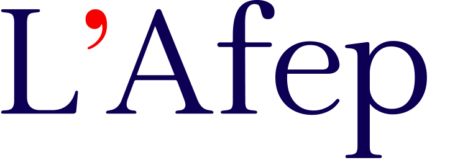The European Qualifications Framework (EQF) is a common European reference framework which links countries’ qualifications systems together, acting as a translation device to make qualifications more readable. The EQF has two principal aims: to promote citizens’ mobility between European Union countries and to facilitate their lifelong learning.
Advertisement
All European countries have a qualifications but a qualifications is a more systematic way of classifying qualifications, usually by a hierarchy of levels. Among the benefits are greater readability of qualifications and easier progression between levels.
The European Qualifications Framework will relate different countries’ national qualifications systems and frameworks together around a common reference. In practice, it will function as a translation device making qualifications more readable. This will help learners and workers wishing to move between countries or change jobs or move educational institutions at home.
For example, currently an enterprise in Ireland may hesitate to recruit a job applicant from, say, Hungary, because it does not understand the level of the qualifications presented by the Hungarian candidate. But once the EQF is fully implemented a Hungarian’s certificates will bear an EQF reference level e.g. level 5, easily compared to Irish qualifications via the EQF and the Irish qualifications framework.
The primary users of the EQF will be bodies in charge of national and/or sectoral qualification systems and frameworks. Once they have related their respective systems to the EQF, the EQF will help individuals, employers and education and training providers compare individual qualifications from different countries and education and training systems.
The EQF uses 8 reference levels based on (defined in terms of knowledge, skills and competences). The EQF shifts the focus from input (lengths of a learning experience, type of institution) to what a person holding a particular qualification actually knows and is able to do. Shifting the focus to learning outcomes
- supports a better match between the needs of the labour market (for knowledge, skills and competences) and education and training provision
- facilitates the validation of non-formal and informal learning
- facilitates the transfer and use of qualifications across different countries and education and training systems.
It also recognises that Europe’s education systems are so diverse that comparisons based on inputs, say length of study, are impracticable.
The use of learning outcomes is part of a wider shift in this direction already underway in many European education and training systems.
For individuals, the European Qualifications Framework will:
- make it easier to describe their broad level of competence to recruiters in other countries;
- make it simpler to read across from one qualification system to another, e.g. when looking for further education and training opportunities.
It is a key aim of the EQF to contribute to creating a truly European workforce that is mobile and flexible. For employers, the EQF will make it easier to interpret the qualifications of foreign applicants.
The EQF will support labour market mobility in Europe both between and within countries and sectors by simplifying comparisons between qualifications and enabling a better match between supply and demand for knowledge, skills and competences.
The EQF is certainly relevant to the labour market.Indeed, the descriptors for the 8 reference levels the core of the EQF were drafted in close cooperation with representatives of the European social partners, as well as the Member States. This followed their and indeed other labour market actors’ contributions to the public consultation process during the second half of 2005. Social partners will also remain involved in implementing the EQF.
As an instrument for the promotion of lifelong learning, the EQF encompasses general and adult education, vocational education and training as well as higher education. The eight levels cover the entire span of qualifications from those achieved at the end of compulsory education to those awarded at the highest level of academic and professional or vocational education and training. Each level should in principle be attainable by way of a variety of education and career paths.
It’s a voluntary framework, so there are no formal legal obligations on the countries. But the Commission is naturally pleased that most countries are already developing a national qualifications framework (NQF). Some countries Ireland, the UK, France, and Malta – already have NQFs. But countries can also relate their systems to the EQF where they don’t intend to establish a framework .
2010 is the recommended target date for countries to relate their qualifications systems to the EQF, 2012 for them to ensure that individual qualification certificates bear a reference to the appropriate EQF level.
No, the EQF describes levels of qualifications in terms of learning outcomes. The awarding of qualifications will remain a matter for national qualifications bodies.
As a voluntary instrument, the EQF is without prejudice to the Directive. This Directive has established rules that Member States are obliged to respect when they receive an application for recognition by a migrant holder of another Member State’s qualification, with a view to exercising a profession which is regulated in their territory. All cases falling under the Directive have to be handled according to the rules of the Directive. When a profession is regulated in the host Member State, the certificate of equivalence delivered under the Directive guarantees the employer that the qualification held by a migrant is equivalent to the national one.
Europass introduced a portfolio of documents to be used by individuals to describe their qualifications and competences. Europass does not, however, ensure the comparability of of qualifications. The further development of Europass will need to reflect the establishment of the EQF. In the future, all relevant Europass documents, in particular the Europass diploma supplement and the Europass certificate supplement, should contain a clear reference to the appropriate EQF level.
The EQF is fully compatible with the qualifications framework for Higher Education developed under the Bologna Process. Specifically, the EQF descriptors at levels 5-8 refer to the higher education descriptors agreed under the Bologna Process. EQF level 5 corresponds to the descriptor developed for the higher education short cycle, EQF level 6 to the descriptor developed for the first cycle (Bachelor level), EQF level 7 to the descriptor developed for the second cycle (Masters level) and EQF level 8 to the descriptor developed for the third cycle (PhD level). However, as indicated at question 7, the formulation of the EQF level descriptors differs from the Bologna level descriptors developed specifically for higher education needs because, as a framework the EQF also encompasses vocational education and training (VET) and work contexts, including at the highest levels.
The EQF is already having an impact at the European and national levels. Most countries are already developing NQFs to implement the EQF and there is no opposition to the EQF’ substance among the countries.
We are also aiding countries in tackling the complex technical issues involved in implementing the EQF by part-funding a series of pilot projects which bring together partners from at least 5 different European countries to work on these issues.







